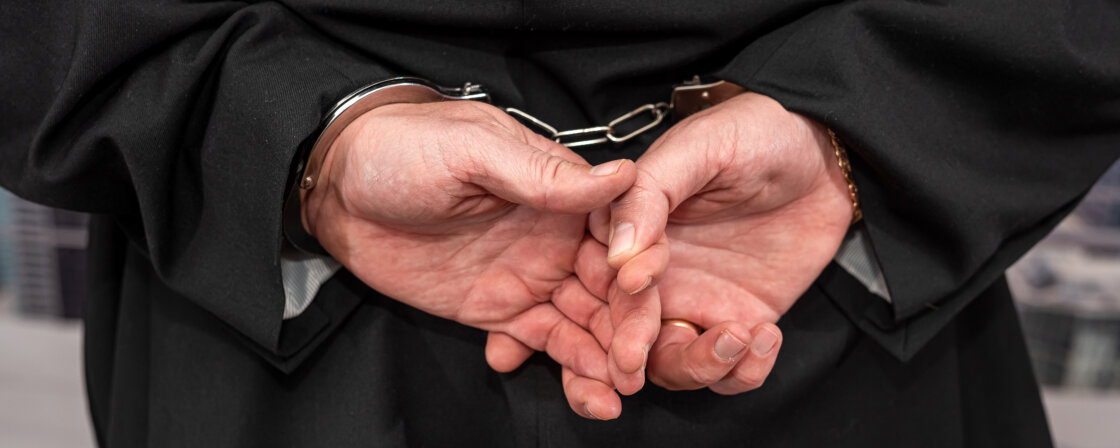Complaint for breach of law as a remedy
A complaint for violation of the law is one of the remedies available in criminal proceedings. Appeals are specific legal mechanisms that allow you to challenge a decision of a court or prosecutor. Appeals are made into ordinary and extraordinary remedies. Ordinary appeals can be used against a non-final decision of the court, while extraordinary appeals can be used against a final decision of the court. A complaint for violation of law is classified as an extraordinary remedy.
When to file a complaint for a breach of the law
A complaint can be lodged against a final decision, i.e. a decision that can no longer be challenged by ordinary legal remedies. A complaint can be lodged on several possible grounds:
Correction of legal defects in final decisions
A complaint for breach of law may be brought if a final decision has infringed the law, for example by misinterpreting or misapplying a legal rule.
Are you solving a similar problem?
Have you been charged and prosecuted?
The stakes are high and it is not worth going through the criminal process without consulting an attorney. We will conduct a careful analysis of your case and propose a course of action for your criminal defense in which we will vigorously enforce your rights.
I want to help
- When you order, you know what you will get and how much it will cost.
- We handle everything online or in person at one of our 6 offices.
- We handle 8 out of 10 requests within 2 working days.
- We have specialists for every field of law.
Correction of a defective procedure
A complaint may also be lodged if there were procedural defects in the proceedings preceding the final decision which affected or may have affected the fairness of the proceedings or the outcome of the decision itself.
Procedural defects may include, for example, failure to allow a party to exercise its rights, errors in the evidence or failure to comply with procedural rules.
Addressing factual deficiencies
Factual deficiencies, i.e. errors of assessment of facts and factual matters, can only be addressed by means of an infringement complaint if they are the result of an error of law or procedure.
If factual deficiencies have arisen in other ways (for example, the facts have changed due to the discovery of new evidence), a motion for retrial must be filed.
Role of the Minister of Justice of the Czech Republic
Only the Minister of Justice can file a complaint for violation of the law. This extraordinary appeal is therefore specific in that it cannot be brought directly by the parties to the proceedings, as is the case with other appeals. You, however, have the possibility to file a complaint for breach of law.
Complaint for infringement of the law
A complaint for violation of law is used to bring to the attention of the Minister of Justice the fact that there has been a violation of law in a particular judicial proceeding and to request that he or she file a complaint for violation of law in the Supreme Court on this matter.
The petition may be filed by any person who feels aggrieved by the court’s decision or by any other person who believes that a violation of the law has occurred. This can be a party to the proceedings (for example, the defendant or the plaintiff), but also a third party who believes that the decision or procedural procedure was unlawful. There are two ways to lodge a complaint for a breach of the law:
Directly to the Minister of Justice of the Czech Republic
You can send the complaint directly to the Ministry of Justice:
Ministry of Justice of the Czech Republic
Ministry of Justice of the Czech Republic Vyšehradská 16
128 10 Prague 2
To the Public Prosecutor’s Office
You can also send your complaint to the prosecutor’s office directly superior to the prosecutor’s office that was responsible for the criminal proceedings at the last instance. The latter will investigate your complaint and then send it to the Minister of Justice with a proposal for a solution.
There is no statutory time limit for filing a complaint for violation of the law.
What the complaint should contain
The complaint should contain certain information that identifies the complainant, the court or prosecutor and the reason for filing it. Specifically, it should not lack:
Identification of the person making the complaint
The complaint should state the full name and residential address. If the complaint is made by a legal person (e.g. company, organisation), then its name, registered office and identification number must be provided. In addition, the complaint should contain the name and function of the person who is authorised to act on behalf of the legal person (e.g. managing director, director).
Contact details
In addition to the basic identification data, the complaint should also contain contact information, such as a telephone number and e-mail address, so that the complainant can be easily contacted.
Identification of the contested decision
The complaint should clearly state what the decision is and who made it. This includes:
- The file number: This is the number assigned to a particular case and is shown on all documents associated with that case.
- The name and seat of the court or prosecutor’s office: Indicate which court issued the decision (e.g. Regional Court in Brno).
- Date of the decision: The date on which the decision was issued by the court.
- Parties to the proceedings: State the names and identification details of all parties to the proceedings, including the plaintiff and the defendant or other parties.
Detailed description of the legal defects
This is the most important part of the complaint, where you should describe in detail what you specifically see as a violation of the law, preferably with the help of an attorney. This may include:
- Misinterpretation of the law: if the court has misinterpreted the law, you should state what specific legal rules the complainant believes have been misinterpreted and how they should be correctly interpreted.
- Misapplication of law: The complainant should explain how the court misapplied the law to the facts, leading to an unlawful decision.
- Procedural errors: If there were procedural errors during the proceedings (e.g. failure to respect the rights of the parties, incorrect conduct of evidence), these errors should be described in detail and reasons given as to how they affected the outcome of the proceedings.
The complaint should also include a legal analysis and references to relevant legislation, case law (previous court decisions), etc. that supports the information that a violation of the law has occurred.
Evidence in support of the allegations
The complaint should be supported by evidence that supports the allegation of a violation of the law. This evidence may include:
- A copy of the contested decision: Include a copy of the judgment, order, or other decision against which the complaint is directed.
- Relevant documents from the proceedings: Attach documents that were produced during the proceedings that are relevant to the assessment of whether a violation of the law occurred (e.g., evidence, witness statements, expert reports).
- References to minutes and other files: Please provide the specific parts of the minutes of the hearing that you consider relevant.
How the complaint is decided
The Minister of Justice decides whether to grant your complaint. If he or she does, he or she will file a complaint for violation of the law with the Supreme Court.
The fact that the Minister of Justice files a complaint does not mean that the enforcement of a final decision is suspended. So if you have been given, for example, a suspended prison sentence, it does not mean that you are no longer on probation.
Here the complaint is assigned to the appropriate panel. It may decide that there has been a violation of the law and overturn the decision of the court or prosecutor’s office. It may then rule on the case itself or order a new hearing before the same court or prosecutor. However, the Supreme Court may also reject the application and uphold the original decision.
Summary
A complaint for breach of law may be used against final decisions of a court which can no longer be challenged by ordinary remedies, in cases where there have been errors of law, procedural errors or errors of fact.
Only the Minister of Justice may lodge a complaint for breach of the law, but anyone may petition the Minister to lodge such a complaint. The complaint must include identification of the person, details of the decision being challenged, a description of the legal defects, and evidence supporting the allegation of a violation of the law. The complaint is then decided by the Supreme Court, which may overturn the original decision or dismiss the complaint.




